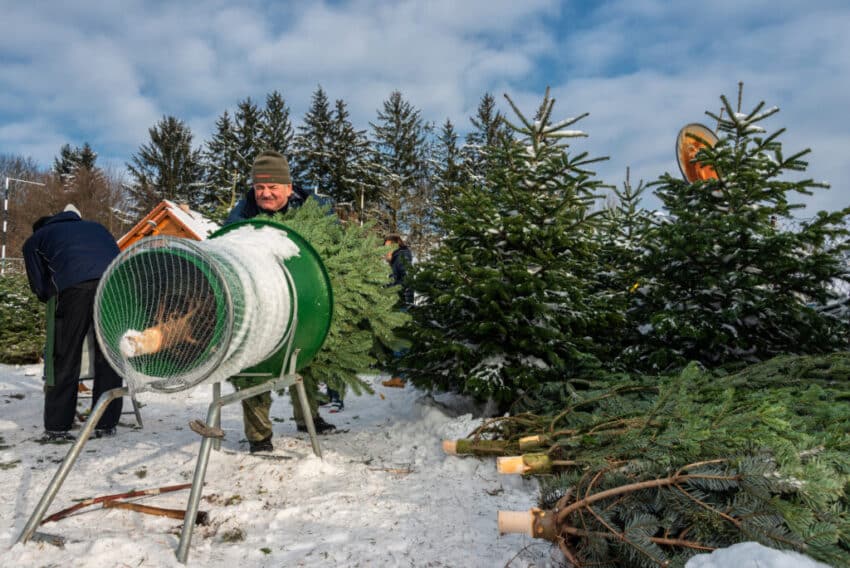Christmas trees are up already – and so are sales. Growers have sold 24% more trees so far this year than at the same time in 2019, according to the British Christmas Tree Growers Association.
Some British farms had their entire crop snapped up by mid-November over fears that the pandemic has made it harder to import trees, according to Olly Combe, this year’s champion Christmas tree grower.
A stocklist kept by the UK’s 320 tree growers has “nothing left on it”, said Combe, the owner of York Christmas Trees, a family-run farm in Yorkshire that sells about 11,000 trees a year.
His prize for winning the BCTGA show earlier this month was to supply a 20ft Nordmann fir to Downing Street. He has trees left for regular customers but has been turning away new business. “I have a friend in Lincolnshire with a slightly bigger business, and he has sold out. Nothing left to sell.”
Farms sell mostly to wholesalers, who have tended to order fewer trees in advance in recent years, he said. “They don’t want to be left with trees on Christmas Eve,” Combe said. “Well, that won’t happen this year. I just don’t think those trees will be there.”
Heather Parry, managing agent of the BCTGA, said: “It feels like it’s really buzzing. Wholesalers are up 24% in sales on last year. People will be in smaller groups so we expect there to be more smaller trees around.”
The UK produces about 5.5 million trees – which take about 10 years to grow – and imports another 1.5 million, mostly from Denmark and Belgium, but a combination of labour shortages and the pandemic has slowed the supply chain, she said.
Another factor is the acceleration of Christmas creep: retailers are usually the ones blamed for ringing sleigh bells earlier and earlier, but this year consumers are equally responsible.
Philippa Dickens, an artist who lives in a village near Burford in Oxfordshire, is buying two trees.
“We’re all locked away so getting the tree and decorating it brings a bit of joy,” she said. “You put the lights on and it’s sparkly and you’ve got the anticipation of Christmas. My husband thought I was completely mad.”
Dickens plans to give away the first Christmas tree, which she bought in a pot two weeks ago, to someone who is shielding. “I’ll buy a normal main one in December.”
Joseff Thomas, a 30-year-old equities analyst, went to a pick-your-own-tree farm in Kent to collect his 9ft blue spruce on 7 November. “I think they were quite surprised to see us,” he said. “They say that people keep Christmas in their own way and for me that means starting early. But this was even earlier than normal. My girlfriend can get a bit annoyed when I play the same Christmas playlist on an almost daily basis.”
Mintel, the market research firm, believes Christmas sales will be almost at the same level as last year despite economic uncertainty. Nick Carroll, an associate director at Mintel, said retailers had been trying to spread out their sales to avoid a Black Friday spike, which would have been harder to deal with due to social distancing in warehouses.
Thomas and his girlfriend are hoping to be able to visit their families in Wales over the Christmas period, and he is hopeful that he won’t return to a needle-strewn floor. “I did do a lot of research into Christmas trees and I’m hoping that with a good watering schedule this will last all the way through,” he said.
But the early sales to wholesalers won’t mean a shortage of Christmas trees at garden centres, Combe said. “Don’t worry, we won’t run out,” he said. “There is stuff around.” He advised people to wait until the first or second week of December. “That’s when the trees are in their best condition,” he said. “It’s great buying trees early, but they’re a perishable product. It’s effectively a giant cut flower. Nobody wants a bare tree on Christmas Day.”


